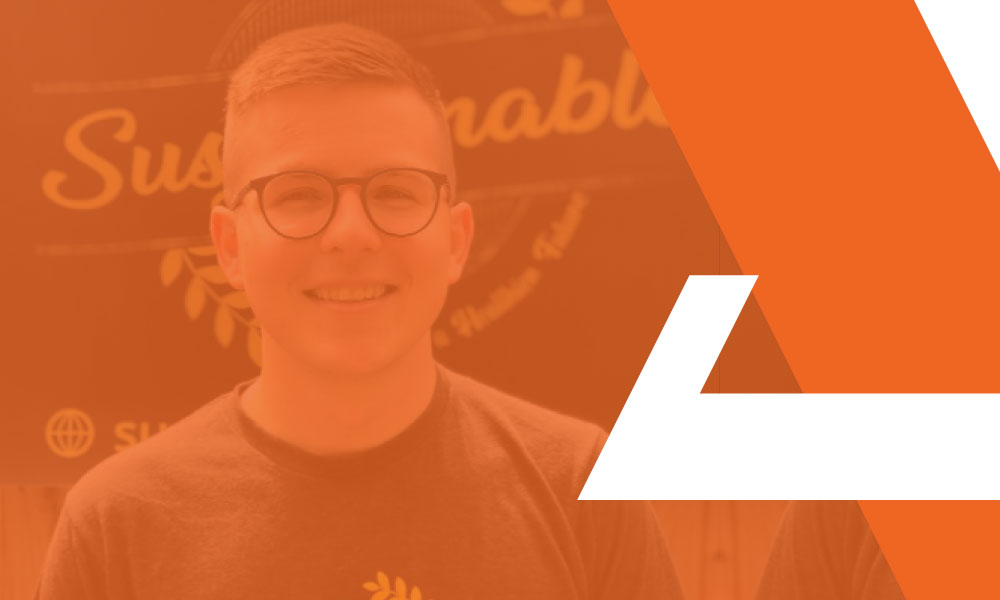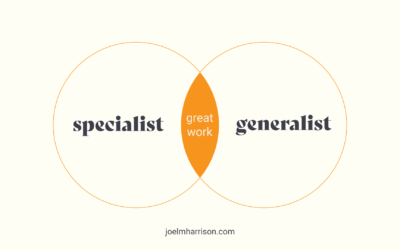Subscribe on: iTunes | Stitcher | Google Play | Spotify
Have you ever wondered what happens to the waste produced when making beer? Maybe you haven’t. Maybe you didn’t know that 650,000 kilos of spent grain are produced each day in Canada. That’s a LOT.
Today we’re talking with Clinton Bishop, a co-founder and COO of Susgrainable. They are turning this beer waste into baked goods. By processing the spent grain, they’re able to produce a flour that has tons of fibre and plant protein, way better that traditional flour. Their signature cookies even have up to 7 grams of fibre in a single cookie!
We talk about circular economy, we talk about supply chain, we talk about how they are getting interest from people, and what some of the hurdles of this business model are.
About Clinton Bishop
Clinton knows the value of a strong work ethic, having grown up on a large-scale farm, gaining a deep immersion in a commodity-based business. Clinton has a BA in political science, 2 years of experience in municipal government, and 4 years of experience in provincial health services. His breadth of operations and management experience from agricultural to government to healthcare makes him an organized, process-driven leader. At Susgrainable, Clinton is Co-Founder and COO, responsible for production, human resources, and administrative functions.
Find on Instagram: @clintonbishop
About Susgrainable
At Susgrainable, they believe that prioritizing health is the best approach to business. They provide people with healthy baked goods made with Susgrainable flour. Susgrainable flour is packed with plant-based protein and fibre and is low on the glycemic index (think no sugar). They help the planet by creating an up-cycled product, creating awareness about food waste and resource efficiency, and by considering the effects of our ecological business footprint.
Website: Susgrainable.com
Instagram: @susgrainable
Email: [email protected]
Everything We Talked About In This Episode
[3:20] How Susgrainable started from a University project in an MBA class project
[5:15] The idea was born of 2 separate ideas: a waste product to use for something, and there’s an issue with a lack of fibre in people’s diets
[6:19] Who else is using this ingredient now? What are the health benefits?
[7:36] How this social enterprise was the founders first introduction to circular economy and business solutions, though Clinton came from the public sector in health care
[8:44] How did you decide whether or not the supply chain was sufficient?
[9:55] Was the health and safety side of it a difficult piece for you?
[10:42] At what point did you start looking at baking with the flour yourself?
[11:15] Thankfully the types of processing were already food safe and certified methods
[12:42] How they are positioning to be a flour company but will always have baked goods as part of R&D and marketing
[13:45] How has the community focus been for you?
[14:20] How they started with a local cafe partners and farmers markets for marketing
[15:20] The breweries welcomed them right from the beginning, dealing with spent grain in a busy city, where it can’t easily be given to farmers for feed is a nice problem to solve for them
[16:53] The breweries are actually partners, they can use it as marketing as well
[18:40] How much spent gain is there? Are you concerned about supply issues?
[19:04] There is approximately 650,000 kilos of spent grain produced daily in Canada
[19:36] What’s the trajectory of this, do you see being in grocery stores as the flour?
[21:46] How have you been able to drive interest so far?
[22:36] Production has been the bottleneck, and the biggest hurdle to growth
[23:42] Partnerships with the right cafe’s – aligned with the story
[24:28] Advice for others: Ask questions about your food, the source, the ingredient, the packaging
[25:50] Reference to Good Natured: Compostable clamshell containers
[26:09] Food without packages is actually not as hard as you might think
[26:35] They’ve been very lucky that all the founders have been very aligned with the values and direction
[28:06] Advice for entrepreneurs: Flexibility is key, being able to pivot and adjust
[30:01] Links: Susgrainable.com – instagram @susgrainable, [email protected]




